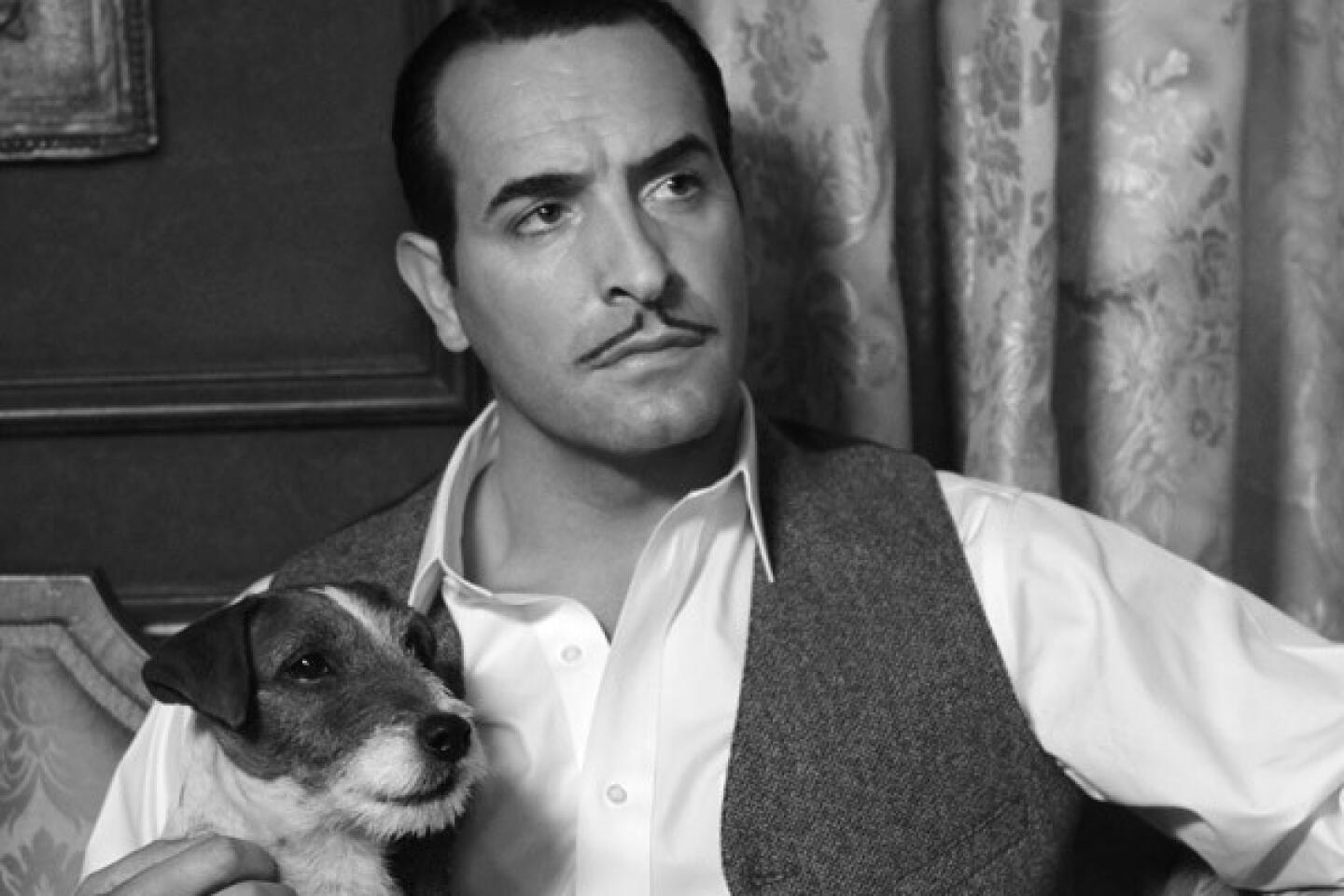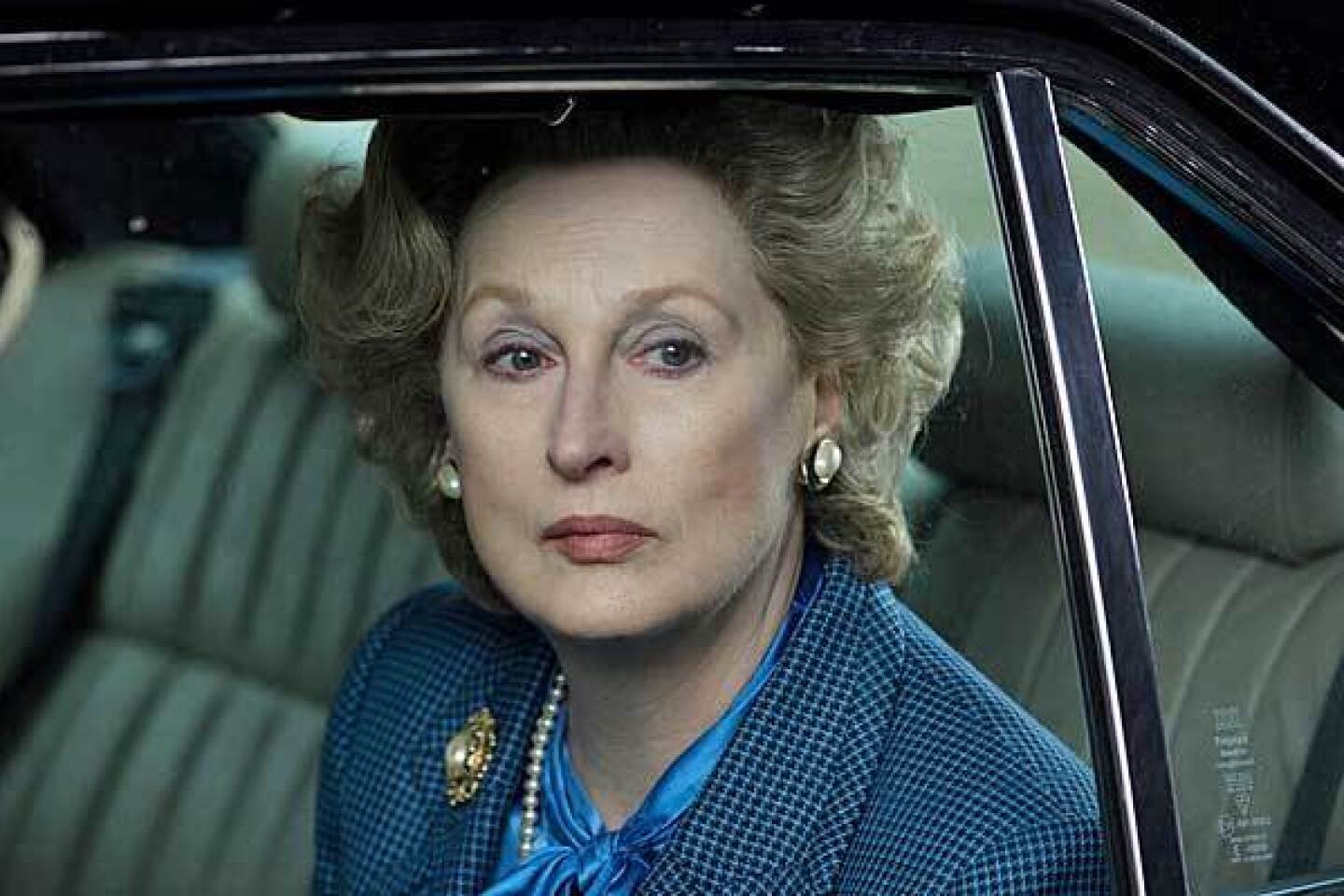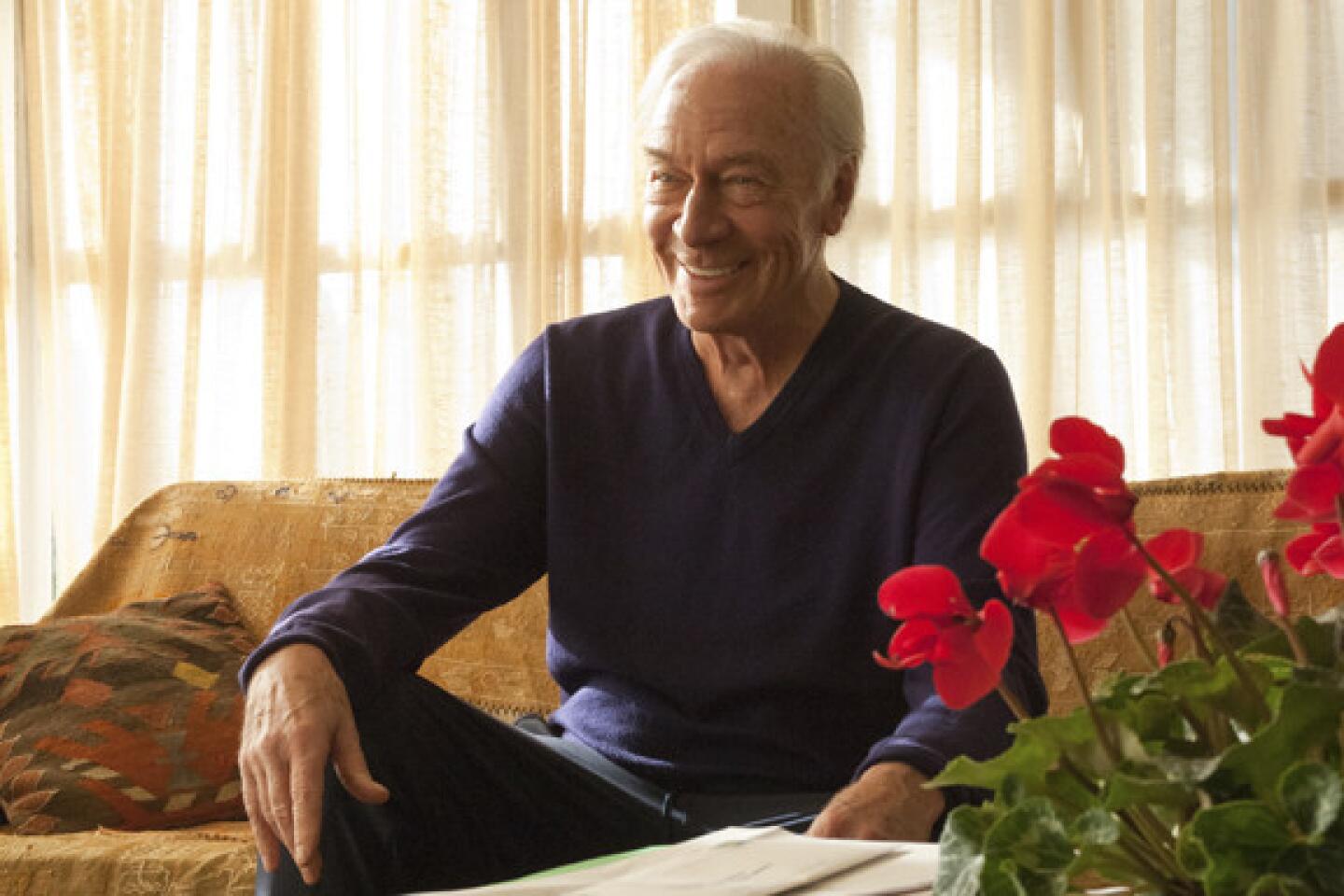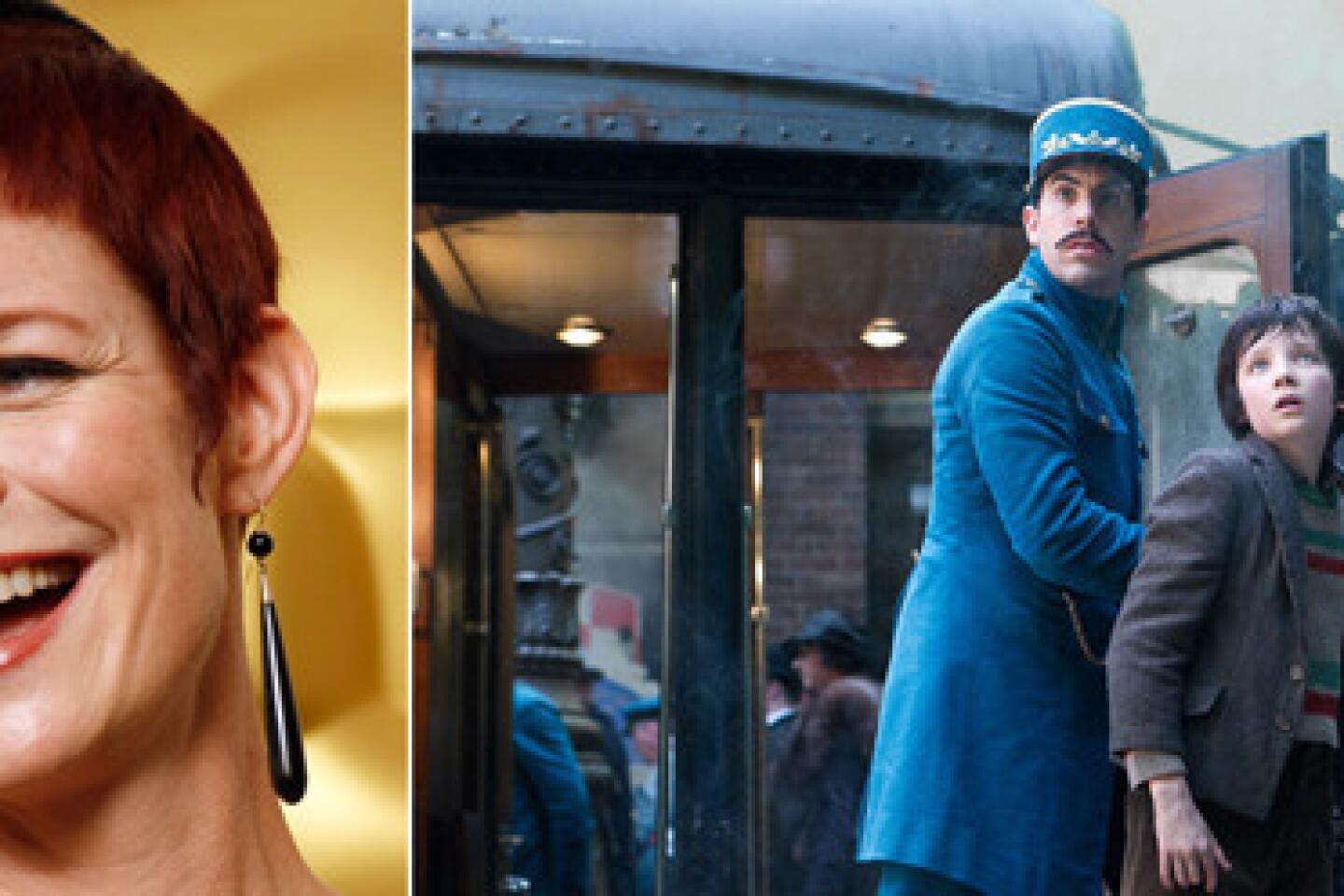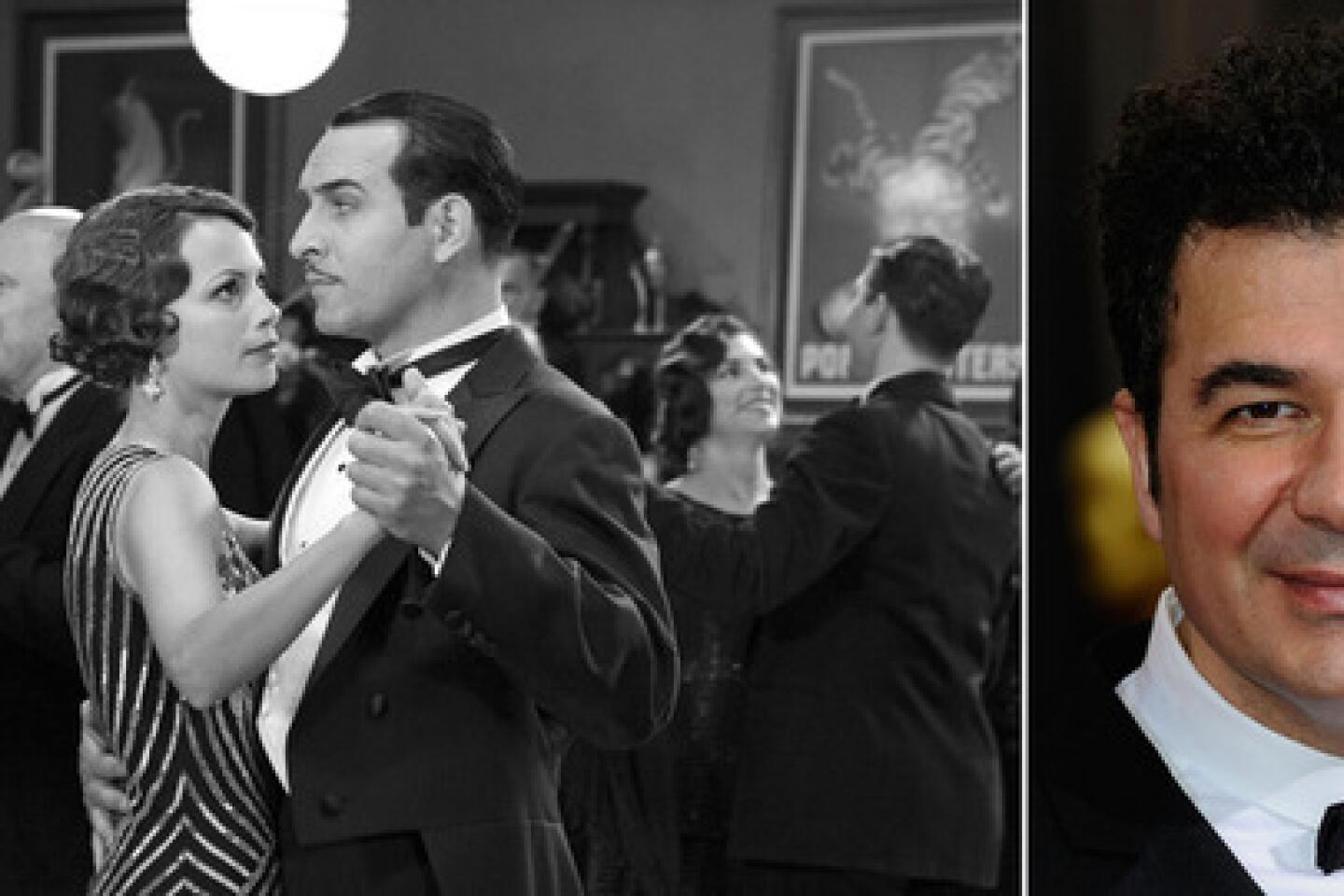Christopher Plummer still has ‘A Word or Two’ to say
“First you’re young. Then you’re old. Then you’re wonderful.”
— Alice Roosevelt Longworth
STRATFORD, Canada — Christopher Plummer is in the wonderful phase of his career — and at 82 he’s seizing the opportunity.
In February, the six-decade veteran of 100-plus movies and uncounted opening nights on stage, vaulted back to the top of the heap while becoming the oldest actor to win an Oscar, for his compelling turn as an out-of-the-closet-at-life’s-end character in the movie “Beginners.”
His first-time win, preceded and followed by a round of engaging talk show appearances, revealed him as a rediscovered resource (a male counterpoint to Betty White perhaps?). The likelihood of a further 15 minutes of octogenarian fame, based on a few additional movie roles showcasing his classically trained skills, seemed probable.
But that would be the predictable path. And Plummer’s career — ranging from “The Sound of Music” to virtually every male lead in the Shakespearean canon — has been built on versatility, not predictability. So this month found Plummer at the prestigious Stratford Shakespeare Festival premiering a self-penned, autobiographical play some 15 years in the making.
“A Word or Two” is a bravura one-man showcase for a few of his favorite things — principally, Plummer’s love of language and writing. Onstage at the bucolic Canadian theater complex that originally launched him to stardom, he spent 90 nonstop minutes — lights fade to black for a seeming intermission but immediately snap back on, Plummer wryly saying “welcome back!” — weaving a tale of personal experience and reflection stitched together with recited passages from Lewis Carroll, W.H. Auden, Dylan Thomas and other literary luminaries.
Plummer is dwarfed on stage by a 30-foot helix of books angling up, over and behind him, clearly implying the literary DNA that is the backbone of “A Word or Two.” The quotes he has chosen don’t support specific anecdotes from his life so much as inform brief ruminations that range thematically from mothers to strippers, jazz to cabaret, religion to death.
Plummer’s startling talent at switching personas on a dime — often through mimicry — is also front and center, and even something he makes fun of (on opening night he followed an extended passage delivered in the voice of a wilting Blanche du Bois-esque Southern belle with a verbal aside to the audience: “Why am I talking this way”?)
“They have all become part of me,” a relaxed Plummer said the morning after opening night of “A Word or Two,” discussing the work in the lounge of the Avon Theatre, where he had unveiled it.
“Reading was a preoccupation since I was young … and an early occupation doing radio dramas,” said Plummer, his rich baritone reflecting his decades on stage. “And then my whole life I have been performing the written word so it felt comfortable using these writers and works I love so much in this manner.”
With white eyebrows doing calisthenics across his forehead as he accentuated points, but the famed temper (“Oh, I’ve still got it, all right,” he said cheerily, and non-apologetically) nowhere on display, he was thoughtful, animated and, ultimately, charming.
Plummer was born and raised a Canadian outsider of sorts: to an English-speaking family in predominantly French-speaking Montreal. His first appearance in Stratford in 1956 in the title role of Shakespeare’s “Henry V,” along with a transfer of the production to the Edinburgh Festival that year, rocketed his stage and film career into existence.
In the late ‘50s through late ‘60s, he was part of a flamboyant pack of non-American actors whose anglicized backgrounds made them sexy, exotic leads of the time — Plummer was grouped with names like Richard Burton, Peter O’Toole, Michael Caine and Richard Harris. As he aged away from leading-man roles, his skill set was strong enough to translate to a career of myriad character roles during the subsequent four decades.
Beginning in the mid-’90s, he first performed a truncated version of “A Word or Two” at occasional private functions or charity benefits. But about 18 months ago, before the Oscar win, he felt it was time to develop the piece into a stageable form.
Director Des McAnuff — known for directing hit musicals “Jersey Boys” and “Tommy” as well as being the artistic director at Stratford and having two stints running the La Jolla Playhouse — received an invitation to visit Plummer’s longtime home in Connecticut.
“He did the whole thing for me at his kitchen table,” said McAnuff in a separate interview. “It was clear right away it deserved a production.”
Stratford is celebrating its 60th anniversary this year, and Plummer is easily its most celebrated alumnus, so it was a logical starting point. “I always feel I owe this place so much,” said Plummer.”Also, being Canadian, the chance to support theater here is something that has always been a push for me.”
McAnuff explained how the piece was able to migrate to stage worthiness in only a year.
“As an actor, maybe the most important thing is that he is a true changeling,” McAnuff said by phone. “He has a great concoction of talent that makes him uniquely able to, in a word or two, become a new character.”
With 20 performances under his belt in a limited run and positive reviews in hand from critics on both sides of the border — including the New York Times, which enthused about the play as “a passionate love letter to language” — Plummer has some ideas, if not hard and fast plans, going ahead.
“If I could find a small theater in New York — the Booth would be fantastic — it could work as a limited run,” said Plummer, momentarily turned promoter. “In California, maybe La Jolla, because of the tie with Des. Or the Ahmanson could work — that is a surprisingly intimate house with the right staging and approaches. It was pleasant doing ‘Barrymore’ there, which was also largely a one-man.”
In fact, “Barrymore,” the play about the fabled classical actor John Barrymore in his later years, which won Plummer the Tony for actor in a play in 1997, is likely the next thing Southern California audiences will see him in. Plummer reprised the role during a week’s worth of stagings in Toronto in late 2010, with the performances filmed and supplemented with exterior footage. A national one-night screening in theaters is aimed to take place in mid-November.
More than 15 years after his initial go at the old rogue, Plummer enjoyed channeling Barrymore again. With a glint in his eye, the actor acknowledged that beverage consumption was a must in resuming the acquaintance, though not to Barrymore-esque heights.
“Oh, God, no,” he said. “For one thing, like all alcoholics he neglected to eat well — they consider it as getting in the way of the main event. All my pals, like Richard Burton and Peter O’Toole, they wouldn’t eat a scrap of food.”
Plummer has considered what makes for a good drunk versus a bad drunk on stage.
“In playing a drinker you have to keep in mind that he always fights to be sober, constantly tries to cut through the distancing that is the pleasure in getting boozed up. So you can’t just slur or it becomes a one-note cheap laugh or a cheap bit of sadness.”
Beyond “Barrymore,” Plummer has a few other film projects in the hopper — “I need to do some film, to remind folks I am still around” — but he is coy about details. Politely, but cagily, he says, “I’m a tiny bit superstitious, or I pretend to be when I need it, to ward off untoward requests.”
Asked about what he remembered most about the Oscars whirlwind, the topic again revolved to words.
“The main thing when the attention started to come was my speech,” he said. “As I won some run-up awards I realized it was the same bloody audience and I didn’t want them yawning at me saying the same thing again and again.”
Oscar night: The preoccupation with the speech continued.
“So they start to read the nominees, and you make sure to have your biggest smile stuck on your face, but sitting there I was running through what I was going to say. I heard my name and bounded on up, but, through it all, it was mainly ‘Plummer, don’t muck up the moment.’”
With one Oscar under his belt, he is reminded that Jason Robards, his pal from their New York theater days, won two. Would it be greedy to want another?
“Enough!” was delivered in a Shakespearean roar. “You could torture yourself forever worrying about things like that,” he said, shaking his head, and with a theatrical flourish, waving an arm, “Move on!”
Then he grinned a most wonderful grin.
More to Read
The biggest entertainment stories
Get our big stories about Hollywood, film, television, music, arts, culture and more right in your inbox as soon as they publish.
You may occasionally receive promotional content from the Los Angeles Times.

